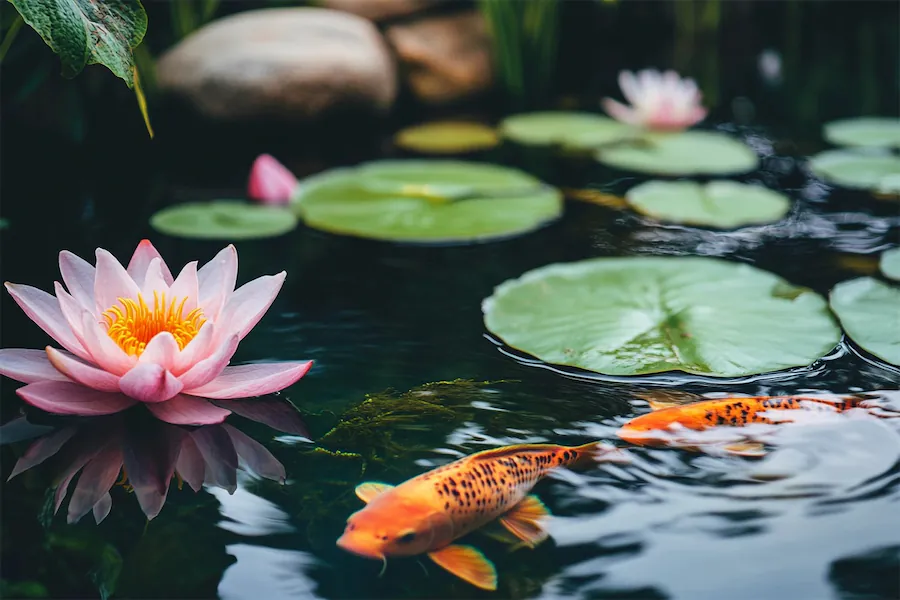A Feng Shui Water Garden is a thoughtfully designed outdoor space that incorporates water elements to harmonize the environment and attract positive energy, or chi. Rooted in ancient Chinese principles, such gardens aim to balance the five elements—water, wood, fire, earth, and metal—to promote well-being and prosperity.
History and Origins of Feng Shui Water Gardens
Feng Shui, translating to “wind” and “water,” is an ancient Chinese practice that emphasizes the harmonious arrangement of surroundings to enhance the flow of energy. In traditional Chinese culture, gardens were designed to reflect natural landscapes, incorporating water features to symbolize abundance and facilitate the smooth flow of chi. These principles have been adapted over centuries to create serene and balanced outdoor spaces worldwide.
Key Features of Feng Shui Water Gardens
- Water Features: Incorporating elements such as ponds, fountains, or waterfalls introduces the water element, symbolizing wealth and abundance. The placement and flow direction of water are crucial; for instance, water flowing toward the home is believed to attract prosperity.
- Balanced Elements: A harmonious garden includes all five Feng Shui elements:
- Water: Represented by water features.
- Wood: Embodied by plants and trees.
- Fire: Introduced through lighting or plants with red hues.
- Earth: Incorporated using rocks, stones, or ceramic pots.
- Metal: Added through metal ornaments or structures. Balancing these elements fosters a tranquil and auspicious environment.
- Curved Pathways: Designing meandering paths encourages the gentle flow of chi, as straight lines are thought to create harsh energy. Soft, flowing lines in walkways and plant arrangements promote relaxation and positive energy circulation.
Applications of Feng Shui Water Gardens
- Residential Spaces: Homeowners can create peaceful retreats by integrating Feng Shui principles, enhancing both the aesthetic appeal and energetic harmony of their gardens.
- Public Parks: Urban planners can design communal areas that promote well-being by incorporating balanced elements and water features, fostering community engagement and relaxation.
- Corporate Environments: Businesses can utilize Feng Shui gardens to create calming spaces for employees and visitors, potentially improving productivity and satisfaction.
Considerations When Designing a Feng Shui Water Garden
- Water Placement: Position water features thoughtfully; for example, placing a fountain near the entrance can attract positive energy into the home. Ensure the water is clean and flowing, as stagnant water is believed to harbor negative energy.
- Element Balance: Assess the existing elements in the space and introduce missing ones to achieve harmony. For instance, if the garden has abundant wood elements (plants), incorporating metal elements through sculptures can balance the energy.
- Maintenance: Regular upkeep of the garden ensures the continuous flow of positive chi. This includes cleaning water features, pruning plants, and removing debris to maintain a vibrant and healthy environment.
Conclusion
Designing a Feng Shui Water Garden involves more than aesthetic considerations; it’s about creating a space that nurtures the spirit and promotes harmony. By thoughtfully integrating water features and balancing the five elements, such gardens can become sanctuaries of peace and prosperity, enhancing the quality of life for those who experience them.
